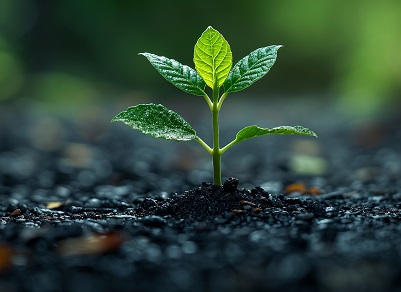PyroNam, a subsidiary of Pyrogenic Carbon and Storage Namibia (PTY) Ltd. (PyroCCS), announced plans to establish 50 biochar plants in Namibia by 2030. The company’s Managing Director, Henrike Geldmacher, revealed this initiative on Monday, emphasizing the development of a business model tailored for communal land, with a pilot plant set to be constructed in 2025.
PyroCCS, a German firm focused on climate technology projects, operates exclusively in Global South countries and aims to remove carbon dioxide from the atmosphere using various methodologies. The company specializes in producing and sequestering biochar from waste biomass and has been implementing pyrolysis projects in Namibia.
Registered to create carbon credits for the voluntary market, PyroNam has already set up a pilot plant near Otjiwarongo at the end of 2022, with plans for a second facility at Waterberg this year. “We intend to scale significantly in Namibia, as the biomass supply is available, aiming for another 50 plants by 2030. For this, we are seeking project debt financing,” Geldmacher stated.
The initial plant has a capacity of processing up to 3,500 tons of dried bush biomass annually, producing over 1,000 tons of biochar, which translates to approximately 2,200 tons of CO2 sequestration. Geldmacher noted that the technology employed is simple, clean, and low in emissions.
Currently, 90% of the technology can be manufactured in Namibia or South Africa, promoting local value creation. The plans are geared towards rural, decentralized settings, responding to strong interest from farmers seeking additional revenue sources while tackling the costly issue of de-bushing.
The first carbon credits from the Waltershagen plant have been sold to several Nordic companies, with all emissions accounted for and retired during the credit generation process. To date, an investment of N$14 million has been made, along with N$4 million from a local private company and N$5.5 million from foreign direct investment.
Despite facing funding challenges that hinder project targets, Geldmacher remains optimistic about securing additional financing. The company currently employs over 21 skilled and unskilled workers.
Biochar manager Eck Volkmann explained that PyroNam utilizes encroacher acacia species, which proliferate on farmlands, as biomass input. “These encroacher bushes grow rapidly, adding 15 million tons of new growth annually to the existing 450 million tons,” Volkmann noted.
Sourcing bush from local commercial, communal, and resettlement farmers through a Forest Stewardship Council (FSC)-approved process ensures sustainable harvesting. “We enter into biomass sourcing contracts with farmers, providing them with additional revenue streams,” he added.
The produced biochar serves agricultural purposes as a natural soil amendment, enhancing water retention and reducing fertilizer needs. However, Volkmann acknowledged the small market for biochar. “We will sell biochar to farmers and donate it for trials and market development, including research institutions,” he stated.





